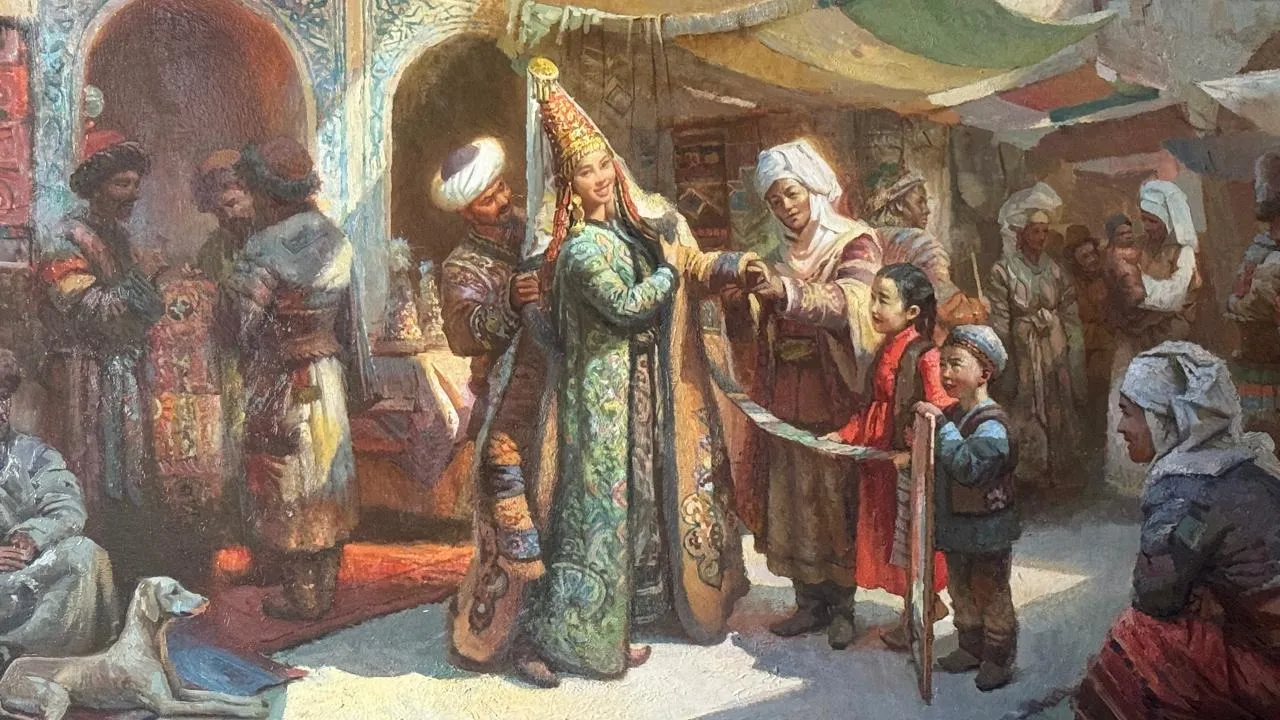
Over the past five years, the Ministry of Culture and Information of the Republic of Kazakhstan has carried out large-scale work aimed at strengthening cultural identity, developing creative industries, and promoting national art on the global stage.
This period marked a time of systemic transformation, the revival of legendary ensembles, and the enhancement of Kazakhstan’s international image as a cultural centre of the Central Asian region.
A new stage began in 2020, when the Government of Kazakhstan decided to elevate the status of leading cultural organizations. Five key institutions — the Kurmanzhanov Orchestra of Folk Instruments, the Mukhtar Auezov and Abai Theatres, the State Academic Russian Drama Theatre named after Mikhail Lermontov, and the National Library — were granted “National” status. During the same period, the Kuanyshbaev State Academic Kazakh Musical Drama Theatre was transferred to republican ownership, opening new development prospects.
The following years were marked by major initiatives. In 2022, two elements of Kazakhstan’s intangible cultural heritage — the puppet dance Orteke and the oral folklore about the adventures of Kozhanasyr — were inscribed on the UNESCO Representative List of the Intangible Cultural Heritage of Humanity.
The legendary ensemble Gulder, a symbol of an entire era of Kazakh pop culture, was revived. More than 2,500 events were held in honour of the anniversaries of Roza Baglanova, Mukhtar Auezov, and Akhmet Baitursynov, many of which had an international reach.
The turn of 2023 became a period of strategic planning: the Government approved the Concept of Cultural Policy of the Republic of Kazakhstan for 2023–2029, setting long-term goals for the industry and giving new impetus to international cooperation. As part of the celebration of the 800th anniversary of Sultan Beibars, 660 events were organised, including several abroad.
In recent years, Kazakhstan’s Days of Culture have been held in Azerbaijan, Armenia, Turkmenistan, Tajikistan, Uzbekistan, Egypt, Russia, and other countries. The program featured gala concerts by Kazakh performers, theater productions, exhibitions of applied and fine arts, national film screenings, and performances by ethno-music groups.
In Cairo, the Kazakh delegation participated in the opening ceremony of the restored mosque of Sultan al-Zahir Baybars and an exhibition of folk crafts and arts. In Tashkent and Samarkand, audiences saw the premiere of the opera Abai and concerts by Qazaqconcert artists.
At the same time, Kazakhstan hosted Days of Culture of Tajikistan, Azerbaijan, and the Republic of Sakha (Yakutia, Russian Federation).
The year 2024 became truly remarkable for the global promotion of Kazakh culture. For the first time, Kazakhstan presented its National Pavilion at the Venice Biennale, the world’s most prestigious art exhibition.
That same year, exhibitions of Kazakh art were held at the Guimet Museum of Asian Arts in Paris and the Tianjin Museum of China (“The Golden Man and the Great Steppe”). At the National Museum of Astana, Leonardo da Vinci’s La Bella Principessa was exhibited. The Qazaq Culture information and educational platform was launched, bringing together cultural institutions across the country into a single virtual space. Two new music ensembles were also established — the State Quintet of Classical Guitarists and the Birlik Ensemble.
The year was also marked by the V World Nomad Games, with Dimash Kudaibergen performing at the opening and closing ceremonies. Monuments to Kurmanzhanov and Abai were unveiled in Ashgabat, and busts of Abai were installed in Dushanbe and Kazan.
The culmination of the five-year period came in 2025 — a time of international recognition and the triumph of Kazakhstan’s humanitarian diplomacy.
Work has begun on a new nomination — the Turkic Sanctuary of Merke. The national ritual Betashar was inscribed on the UNESCO Representative List of the Intangible Cultural Heritage of Humanity, and together with Uzbekistan, a joint nomination Keste–Suzanne was submitted.
One of the key events of the year was the opening of the Cultural Centre of the Republic of Kazakhstan in Beijing. The grand ceremony was attended by President Kassym-Jomart Tokayev, Minister of Culture and Information Aida Balayeva, Minister of Culture and Tourism of China Sun Yeli, diplomats from both countries, and representatives of the creative community.
The establishment of the Centre is the result of long-term diplomatic efforts and high-level agreements. In 2022, during the state visit of the President of China to Astana, Kassym-Jomart Tokayev and Xi Jinping agreed to establish cultural centres in China and Kazakhstan on a parity basis.
Meanwhile, Aktau was designated the Cultural Capital of the Turkic World 2025, and in Bishkek, the Golden Bridge of Friendship monument dedicated to Mukhtar Auezov and Chingiz Aitmatov was unveiled. A new Law, “On the Special Status of the City of Turkistan”, was adopted, recognising it as the spiritual, historical, cultural, and tourist centre of the country.
Modern technologies have become an integral part of cultural development. The E-Museum virtual network was launched, providing access to information on 275 museums, 65,000 exhibits, and over 200 3D artefacts. Digital monitoring systems and artificial intelligence tools are now being implemented at national heritage sites to preserve and document cultural monuments.
Five years of continuous work by the Ministry of Culture and Information of the Republic of Kazakhstan have become a true era of revival. Kazakh culture has gained new vitality, and the achievements of national artists, creative collectives, and museum institutions have rightfully become the pride of not only the nation but of the entire world.
Today, Kazakhstan confidently strengthens its position as a cultural leader of Central Asia, open to dialogue, innovation, and cooperation.
Press Service of the Ministry of Culture and Information of the Republic of Kazakhstan